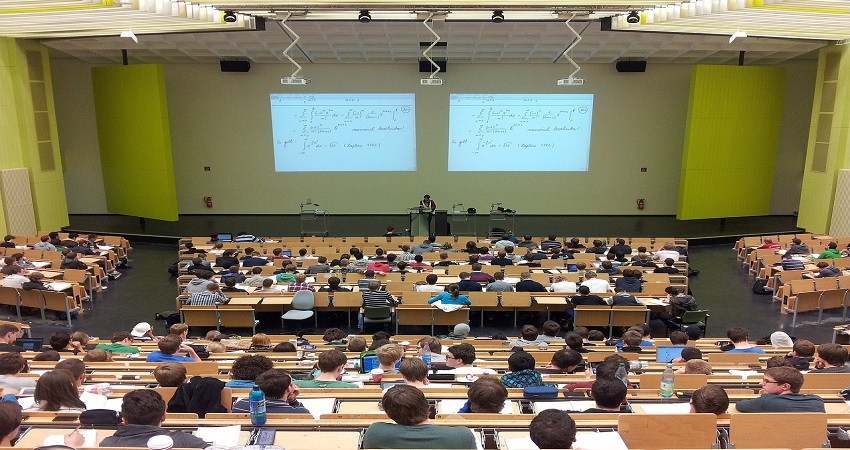In the United States, a college typically offers undergraduate degrees, while a university offers undergraduate and graduate degrees. Colleges primarily focus on undergraduate education, whereas universities offer a broader range of academic programs, including graduate degrees and research opportunities.
The distinction lies in the level of degrees granted and the scope of academic offerings. While colleges tend to be smaller and more focused, universities are larger institutions that encompass multiple colleges or schools. Students looking for a more specialized undergraduate experience may choose a college, while those seeking a comprehensive educational environment with expanded research and graduate options often opt for a university.
Both colleges and universities play a vital role in providing higher education opportunities to students seeking various academic paths.
Defining College And University
In order to understand the difference between college and university, it is essential to first define each institution and identify their key characteristics. Both college and university offer higher education, but they differ in several important ways.
Key Characteristics Of Colleges
- Focuses on undergraduate education
- Smaller class sizes, facilitating personalized attention
- Often emphasizes hands-on learning and practical skills
- Primarily offers two-year associate degrees and four-year bachelor’s degrees
Key Characteristics Of Universities
- Offers a wide range of undergraduate and graduate programs
- Emphasizes research and academic scholarship
- Can have larger class sizes and a diverse array of academic disciplines
- Grants bachelor’s, master’s, and doctoral degrees
Education Programs
- Let’s explore the difference in the education programs offered by colleges and universities.
Programs Offered By Colleges
- Colleges focus on undergraduate programs like Associate degrees and Certificates.
Programs Offered By Universities
- Universities offer a wider range of programs including Bachelor’s, Master’s, and Doctorate degrees.
Admission Requirements
- Understanding the difference between college and university admission criteria is crucial for prospective students.
Admission To Colleges
College admissions typically focus on high school GPA, SAT/ACT scores, recommendation letters, and personal statements.
- High school GPA
- SAT/ACT scores
- Recommendation letters
- Personal statements
Admission To Universities
University admissions entail a more competitive process, considering factors such as academic achievements, extracurricular activities,
- Academic achievements
- Extracurricular activities
- Standardized test scores (SAT/ACT)
- Essays or personal statements
- Letters of recommendation
Campus Life
College Campus Life
College campus life is often characterized by its smaller and more intimate setting. Student populations are generally smaller, creating a close-knit community and fostering stronger peer connections. The focused nature of college programs allows for a more specialized and hands-on educational experience. This environment often provides more opportunities for mentorship and personalized attention from professors.
University Campus Life
University campus life, on the other hand, typically features a larger and more diverse student body. The expansive range of academic programs and extracurricular activities contribute to a more bustling and dynamic atmosphere. Universities often offer extensive facilities, resources, and research opportunities, providing students with a broader spectrum of experiences. The diverse and vibrant campus life at universities presents students with a multitude of social and academic engagement opportunities.
Cost Of Attendance
The cost of attendance can vary between college and university, influencing students’ decision-making process. Differences in tuition fees, accommodation, and living costs can greatly impact the overall expense of pursuing higher education.
Tuition And Fees At Colleges
When it comes to the cost of attendance, one major difference between colleges and universities is the tuition and fees. At colleges, the tuition fees are generally lower compared to universities. This is because colleges usually offer a more focused curriculum with a narrower range of degree programs.
The average annual tuition fees at colleges can range from $4,000 to $30,000, depending on various factors such as the location, reputation, and degree program. Additionally, colleges often provide more affordable options for students who are looking to save on expenses. Some colleges offer online courses, which can be a more cost-effective option for students who want to pursue higher education.
Tuition And Fees At Universities
On the other hand, universities tend to have higher tuition and fees compared to colleges. This is mainly because universities offer a broader range of programs and facilities, such as research centers, libraries, and state-of-the-art laboratories. The average annual tuition fees at universities can range from $10,000 to $60,000, depending on the university’s prestige and the program chosen.
Moreover, universities often have higher operating costs due to their larger size and more extensive range of services and amenities. These costs are reflected in the tuition fees, making universities costlier for students. However, it is important to note that universities also offer various financial aid options, such as scholarships and grants, to help students manage the cost of attendance.
Frequently Asked Questions Of What Is The Difference Between College And University?
What Is The Difference Between A College And A University?
A college typically offers undergraduate degrees, whereas a university offers both undergraduate and graduate degrees. Universities also tend to have a broader range of academic programs and research opportunities compared to colleges.
Conclusion
The differences between college and university lie in their academic offerings and structure. Understanding these distinctions can help students make informed decisions about their higher education journey. Whether pursuing a specialized program at a college or seeking a broader education at a university, it’s important to consider individual goals and aspirations.
